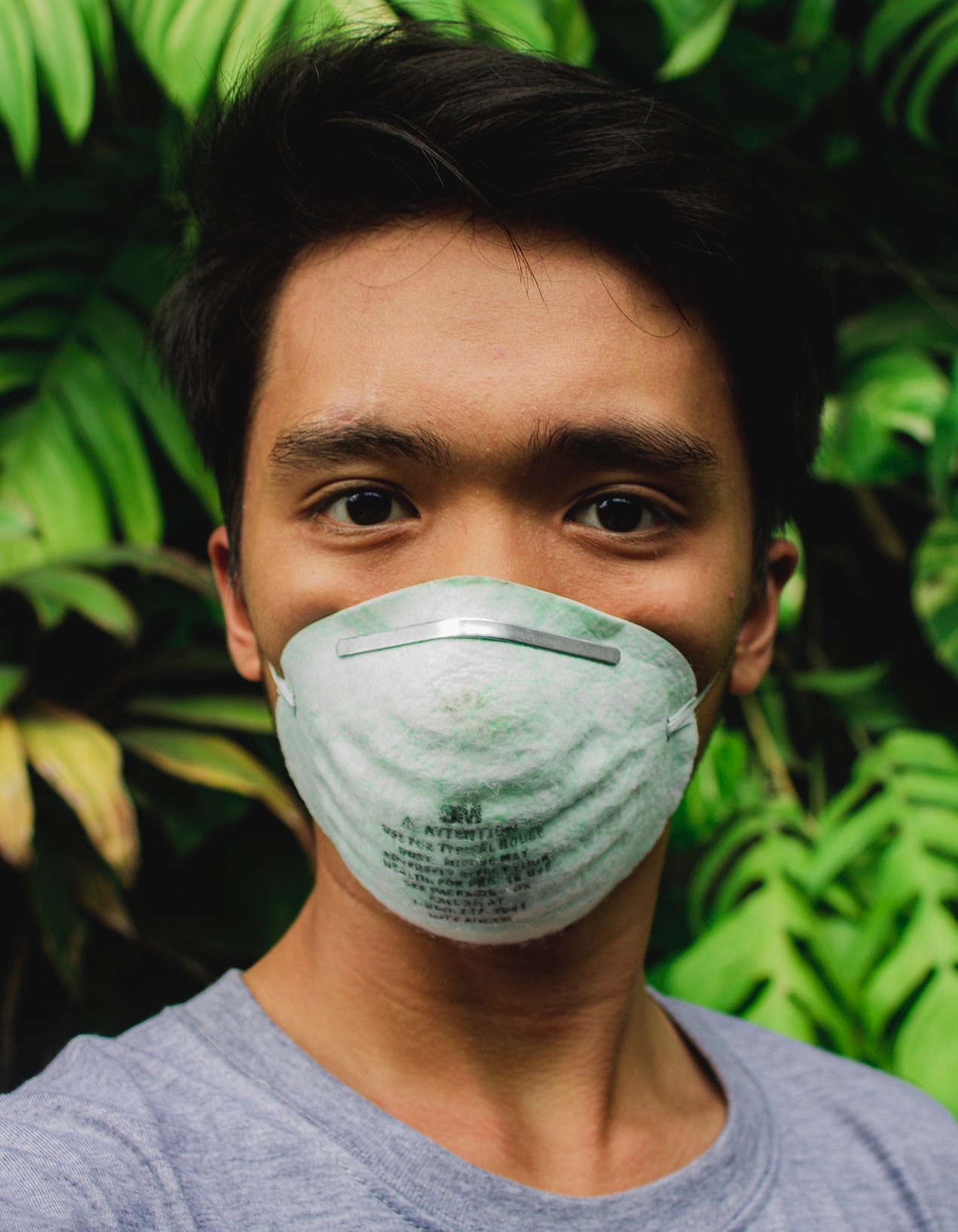This article’s archived and only has old information from March 2020.
It seems scary. A lurking virus with unknown factors of risk can stop anyone in their tracks — especially those planning vacations or trips abroad.
The best way to handle any threat towards the health of yourself and your loved ones is to stay educated. We’ve compiled a list of resources about the Corona virus in this post, where the outbreaks are happening and what you can do you help. We’ll also share real-time advice and facts from experts who are handling the outbreak on the ground and from afar so you can be informed and prepared.
What is the Corona Virus?
The Corona Virus, or SARS-CoV 2, is a new virus outbreak that originates in mainland China. The illness itself is known as COVID-19.
For additional up to date information, keep an eye on the reporting from the New York Times.
As of MARCH 2, there have been about 89,300 reported cases of the virus, with 3,060 fatalities. Just to be factual, that’s a 2-3% rate of lives lost per those reported cases — in comparison, the seasonal flu has a 0.1% mortality rate, and Ebola has a 40% mortality rate.
Some people who contract the disease are not symptomatic. Others are not coming forward it all, thinking it might be a common flu or bad cold. Sadly, the vast majority of those who succumb to the virus are already very ill, are prone to immune deficiencies, or are elderly. Previously people thought children were more at risk, but the latest reports show it’s more seniors than children. The large majority of the general population, even if all were exposed immediately, would be completely fine.
Even if you are fine though, it’s best you take measures of precaution to help protect those who might be most susceptible to risks of the virus. Let’s see what an expert in public health has to say below!
What the experts are saying
(Interview on February 25th 2020) Tom Cotter is the Director of Emergency Response and Preparedness at Project HOPE. Tom has worked diligently on various global projects to organize various forms of assistance in times of distress — most recently Hurricane Dorian in the Bahamas, flooding and extreme weather in Madagascar, and post medical care and management for polio in Nigeria. Nigeria. Currently, he is managing Project HOPE’s global response to COVID-19.
His organization has distributed four million face masks, 80,000 isolation gowns, 17,500 protective coveralls, and 280,000 pairs of exam gloves to China in a massive undertaking to help bring vital protective measures to the heart of the issue. Tom took a few minutes to answer some pressing questions many travelers have about what to do next.
Does the SARS-CoV 2 virus pose more of a life threat than the common cold?
“Experts think so. The exact fatality rate is unknown, but is likely between 1-3%. This makes it far less life threatening than SARS’ 10% fatality rate (another corona virus), but potentially more significant than the common cold — and far, far below the fatality rate of Ebola at about 40%.
COVID-19 is particularly serious for the elderly, and those with compromised immune systems, but the vast majority of people recover within a few weeks. One of the trickier aspects of really understanding this outbreak is that the transmission routes isn’t agreed upon by experts.”
How do outbreaks like this affect local businesses?
“If the global stock markets are any indication, businesses everywhere are feeling the effects of the outbreak at the moment. Local businesses within quarantine zones are closed. Everywhere else in China, they are slowly reopening after an extended Chinese New Year break. In other countries with cases of COVID, the effects are similar- businesses within the quarantine zone will close, and those outside will continue but may feel the effects of global supply chain restrictions.
Many travelers are cancelling vacations, regardless of destination, and this is surely affecting many local businesses. However, the risk of contracting the disease in a country without an active outbreak is very low.”
What can travelers do to protect themselves and others from the COVID-19 outbreak?
“Luckily, the usual hygiene that helps prevent the flu or cold are also recommended for COVID-19. Wash your hands frequently, and avoid touching your face. Follow the CDC (Center for Disease Control and Prevention) and US State department guidelines for traveler safety.
While you may see some travelers at large airports wearing masks, this is not currently recommended by the WHO (World Health Organization). In fact, the WHO does not [currently] recommend any specific health measures for healthy travelers.”
If you’d like to donate to Project Hope, click here for more information about their ongoing relief efforts.
So, should you be traveling?
(UPDATED MARCH 2nd) 67 countries have reported cases of COVID-19 so far. Some of the largest outbreaks (100 or more) have been in:
- China
- South Korea
- Certain regions of Italy
- Hong Kong
- Iran
- Japan
- Singapore
If you have a compromised immune system, respiratory disease, or are elderly, it might be best to consider your specific travel plans on a case by case basis. Regular travelers are not advised to cancel plans as of now by health authorities except in China, South Korea, Italy and Iran. These countries all have a level 4 travel warning from the CDC. You should also be prepared to comply with Covid-19 testing requirements of other countries. When searching things like “urgent care near me Los Angeles,” make sure the providers offer the type of Covid-19 test that you are required to provide before travel.
Check which countries and regions are experiencing large outbreaks and use your best judgement. Know that some hotels, cruise ships and other contained areas where travelers frequent are being quarantined for extra precaution, even if there is just suspicion of an outbreak or illness.
How can you help?
Donate to non-profits working to help combat the outbreaks and protect those most vulnerable, including Project HOPE. If these organizations can do their jobs well, the outbreak can be managed most effectively and the least amount of people will be at risk.
And also, when you do take your vacation, remember to help support local businesses! Some business, especially Asian-owned ones, are suffering needlessly under the panic surrounding the Corona virus. Support each other and offer ways you can help.
How to best combat virus outbreaks while traveling

- Stay informed about where there might be risk and plan accordingly.
- Be up to date on all your regular vaccinations for common flu and measles. Ask your primary care doctor about specific countries you may travel to and what vaccines would be needed.
- Continue to eat healthy, take care of your body, and add immune-boosting supplements to your daily routine.
- Sanitize your spaces on airplanes, in restrooms, and other public areas if you are susceptible to illness.
- If you feel more comfortable wearing a mask, you can in public areas such as airports. However, the correct masks are not readily available right now and are needed by medical professionals. Here are downloadable guides to show proper use and disposal.
- Above all, invest in travel insurance and know what is covered under your plan if something happens and you need to cancel a trip. Email us anytime for recommendations and options! I personally use World Nomad.
(UPDATED MARCH 2) How To Handle Quarantines at Home and Abroad
The new worry above getting the virus for healthy people is the possibility of an outbreak locally. A self-imposed or government-imposed ‘quarantine’ sounds fearsome, but not if you are prepared. See who the people of Wuhan are handling it, as many are just bored! Of course, though, anxiety lies in separation from families, job security, or if you have medications that need to be fulfilled. Those who have travel plans are also not only concerned about the country they plan to visit, but how they might be processed upon return.
Once you prepare for a possible quarantine — let it go for now! Your mental health is just as important as physical during times like these, so take a deep breath and continue on as normal as possible. So, here’s a short list of things you may need if you have to be housebound or will be traveling.
Travel Quarantine Checklist
- Have some snacks and water on your person when heading through immigration at the airport. Lines could get longer or you may be pulled aside for additional screening.
- Any essential medications, possibly enough supplies for a day or two just in case
- Printed copies of all travel documents, including passports, flight information, and IDs
- Comfortable shoes and daywear to handle potential longer waits
- Charged up portable battery packs to keep smartphones, laptops, e-readers charged for information access (& entertainment!)
At-Home Quarantine Checklist
- 30-day supply of non-perishable food items. Stock up a pantry, and don’t necessarily rely on food delivery services.
- 60-day supply of necessary medications: If possible, ask your doctor for an advance on any needed medications. Look into home delivery services as well. Check your health insurance policy for any flexibility.
- Holistic and over-the-counter health remedies: Vitamin C supplements, calming chamomile teas, and plenty of cold/flu medicines on hand will keep you away from the pharmacy regardless if what ailment you might have during quarantine.
- Hand sanitizer and up-to-date vaccines: While this won’t help in a viral outbreak, it’s important to take care of your overall health while housebound.
- 30-day supply of toiletries, cleaning supplies, pet supplies: There might not be shortages, but you’ll want to avoid public spaces like stores and subways.
- Batteries, battery packs: Good for working-from-home scenarios, especially if roommates, families, etc. will also be sharing home space for work and school.
Remember, things like local utilities and other basic needs will continue to be met, so stocking up on water, etc. most likely not be necessary. Do whatever you need to meet your level of comfort and security. But there’s no need to panic — be prepared, stay informed and take care of yourself like always.
Please share this article with anyone you think it could help!






Timely article. I have debated whether or not I want to cancel two trips I have coming up very soon. I’m not too concerned about actually getting sick; I’m more concerned about being on lockdown somewhere because someone else tests positive. I haven’t cancelled any plans yet, but I’m keeping an eye on things and will refer back to this post. Thanks!
I have the same concerns. Quarantines seem like a big headache, even if necessary! It’ll be good to keep a finger on the pulse.
This was a balanced and well researched article and not muck raking for clicks. Great job. It’s interesting to see how global population statistics compare to the emotional response of anecdotal stories.
Thanks guys, I appreciate it! I’m passionate about having an anti-alarmist mentality and want to make sure everyone keeps enjoying traveling while still taking care of themselves and others.
Good tips for anyone considering traveling! Thanks for summarizing everything so completely!
I appreciate the balance and research put into this (and that you’re keeping it updated). It has been a pet peeve of mine as of late to see the fear-mongering surrounding this whole thing. I only hope that things start de-escalating soon.
Amazing tips. Thanks for sharing this article. I am glad I found it 🙂